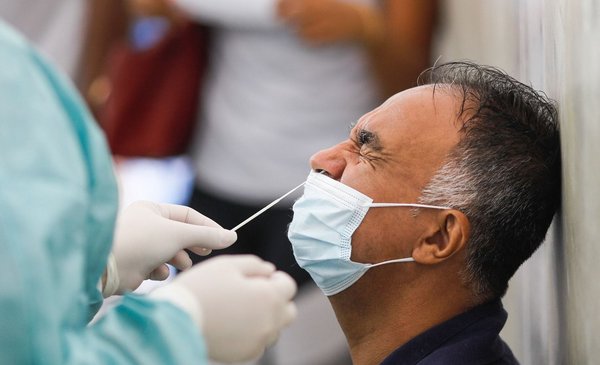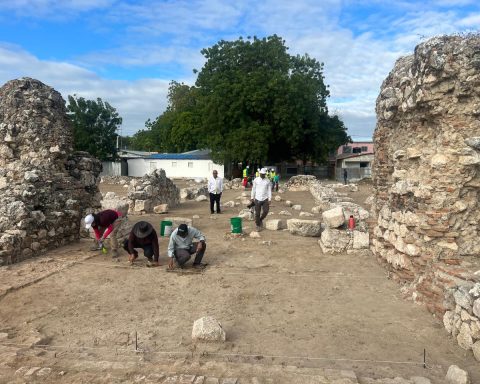Although since January 18, asymptomatic people do not have to be swabbed even if they are close contact of a positive, the number of tests carried out in the second half of January has remained high. From Monday, January 24 to Sunday, January 30, an average of 25,719 tests were carried out per day (a total of 180,033), a number lower than that of the first week in which the new regulations came into force, from January 17 to 23, when the average was 30,987 daily tests (216,911 in total) although it is still a number above what had been recorded in previous weeks.
The January 18 change came after a saturation of the first level of care, when the swabs were scheduled for four or five days after requested. According to the director of the First Level of Care of the State Health Services Administration (ASSE), Daniel Strozzi, the asymptomatic represented “more or less half” of the tests before the change, reported El País.
This change was reached despite the fact that on January 10 the president, Luis Lacalle Pou, said that I was going to keep testing for all people in a “guarantee” attitude of transparency, despite the fact that at that time – when the amount was less than now – it represented an expense of $1 million per day.
A few days later, scientific societies and the Uruguayan Medical Union (SMU) described risky test “everyone” because “There are populations at higher risk that deserve more attention”, said the representative of scientific societies Gustavo Musetti, after a meeting with the Ministry of Public Health (MSP).
The Minister of Health, Daniel Salinas, stated on January 12 that the MSP was already “studying and talking with the technicians” of the portfolio possible changes, which ended up materializing six days later.
12 days after the change and with an average of 25,000 tests per day, Salinas told The Observer that, although a detailed analysis of the subject has not yet been carried out, he understands that the number of tests can be maintained because “the delay with which they had been testing was washed away” the different providers.
MSP sources told The Observer that high virus circulation by the omicron variant, and the number of intrafamilial outbreaks They are also the reason that the number of swabs has not had a pronounced decrease. The current protocol states that the cohabitants of a positive have to be swabbed even if they are asymptomatic.
However, this number may be affected by a recent variant: The Argentine government decreed that since January 29 Argentines (and neither do Uruguayans) do not need a negative swab to enter the country. Juan Andrés Abín, director of the ATGen laboratory, told The Observer that this change does not represent the majority of swabs in private laboratories, but it does An important part.
Abín indicated that the number of swabs performed by ATGen It was down from early January, and they expect next week to see lower numbers. He added that the testing posts are located “quieter” in Montevideo and the Uruguayan coast.
According to the director, this situation will allow the laboratory to deliver the results on the same day, when now they are delivered within 24 hours. If the protocol of swabbing all people had been maintained, Abín considers that “there would be a very high demand” for swabs.

















